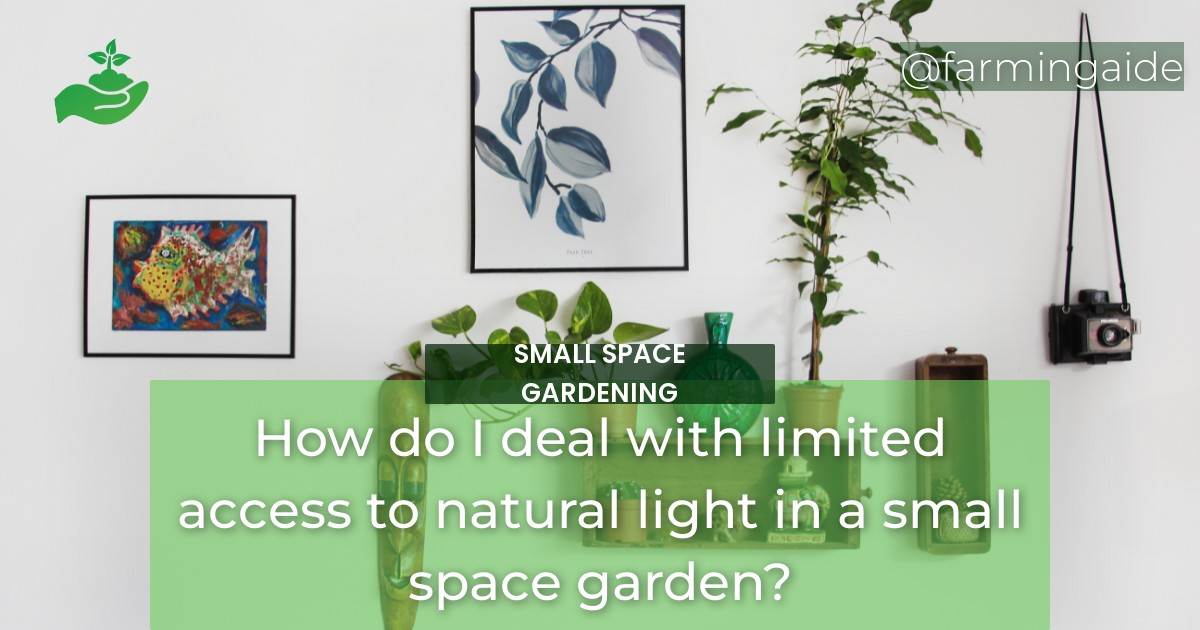Yes, you can have a small space garden in a rental property. With the increasing trend of urbanization, many people, especially renters, are looking for ways to have a garden in the limited space they have. Gardening has numerous benefits, including a healthier lifestyle, stress reduction, improved air quality, and cost-effectiveness.
Tips for Gardening in Limited Space When Renting a Property
Benefits of Small Space Gardening
Cost-Effective
Gardening in a small space, especially when renting, can be cost-effective. It requires less water, fewer tools, and less maintenance, making it an affordable option for renters. You can also grow your vegetables and herbs, saving money on groceries.
Stress-Reliever
Gardening is a stress-reliever, and having a small garden in a rental property can help you unwind after a long day of work or study. It also provides a sense of accomplishment and satisfaction when you see your plants grow.
Healthier Lifestyle
Small space gardening can improve your overall health by providing fresh vegetables, fruits, and herbs. It can also increase physical activity levels and reduce stress levels, leading to a healthier lifestyle.
Better Air Quality
A small space garden can help to improve air quality by absorbing pollutants and producing oxygen. It can also help to mitigate the effects of urban heat islands, reducing the temperature in the surrounding area.
ALSO READ
How to Start a Small Space Garden in a Rental Property
Determine the Type of Garden
The first step when starting a small space garden in a rental property is to determine the type of garden you want to have. Do you want a vegetable garden, herb garden, or flower garden? Knowing the type of garden you want can help you to choose the right plants and containers.
Choose the Right Plants
Choose plants that are easy to grow and maintain in a small space. Some of the best plants for small space gardening in rental properties include tomatoes, peppers, lettuce, and herbs such as basil, parsley, and cilantro.
Pick the Right Containers
When choosing containers, consider the size of the plant and the size of the container. The container should have drainage holes and be able to hold enough soil for the plant to grow. You can use hanging baskets, window boxes, and pots to create your garden.
Consider Sunlight and Water
Most plants require specific amounts of sunlight and water to grow. Before choosing your plants and containers, consider the amount of sunlight your rental property receives and the availability of water sources.
Use Vertical Space
Vertical gardening is an excellent way to maximize your small space garden. Utilize wall space, railings, and fences to hang pots and planters.
Opt for Portable Gardening Tools
As a renter, you may not have access to a shed or storage space for gardening tools. Opt for portable gardening tools such as foldable shovels, pruners, and hand trowels that are easy to store and transport.
What to Avoid When Gardening in a Rental Property
Using Permanent Structures
As a renter, you should avoid using permanent structures such as raised garden beds or installing a greenhouse. These structures are difficult to move and can cause damage to the property.
Digging up the Land
Digging up the land is not advisable when gardening in a rental property. It can damage the property, and the landlord may not approve of it.
Planting Invasive Plants
Planting invasive plants such as bamboo, mint, or ivy can be harmful to the environment and other plants in the area. Always research the plants before planting them in your small space garden.
ALSO READ
Maintenance Tips for Small Space Gardens in Rental Properties
Watering Techniques
Water your plants regularly to keep them healthy. Use a watering can or a hose with a sprayer attachment to water the plants, ensuring that the water reaches the soil and not just the leaves.
Fertilizing Methods
Use organic fertilizer to keep your plants healthy. You can also use compost or worm castings to improve soil quality.
Pest Control
Prevent pests by regularly inspecting your plants and removing any damaged leaves or insects. You can also use natural pest control methods such as companion planting, neem oil spray, or garlic spray.
Pruning and Trimming
Prune and trim your plants regularly to promote healthy growth and prevent disease. Use clean and sharp pruning shears to avoid damaging the plants.
Soil Management
Soil management is essential to maintain a healthy garden. Regularly check the pH level of the soil and add amendments such as lime or sulfur as needed.
Conclusion
Small space gardening in rental properties is an excellent way to enjoy the benefits of gardening without owning a property. With proper planning, choosing the right plants, and following maintenance tips, you can create a beautiful and productive small space garden in your rented home.


